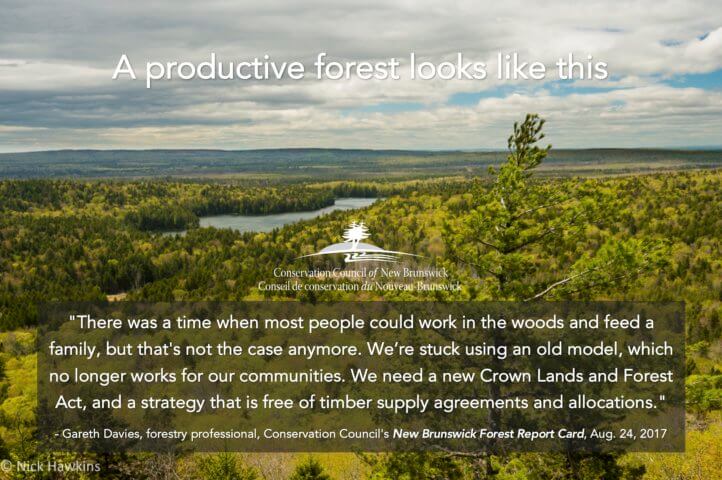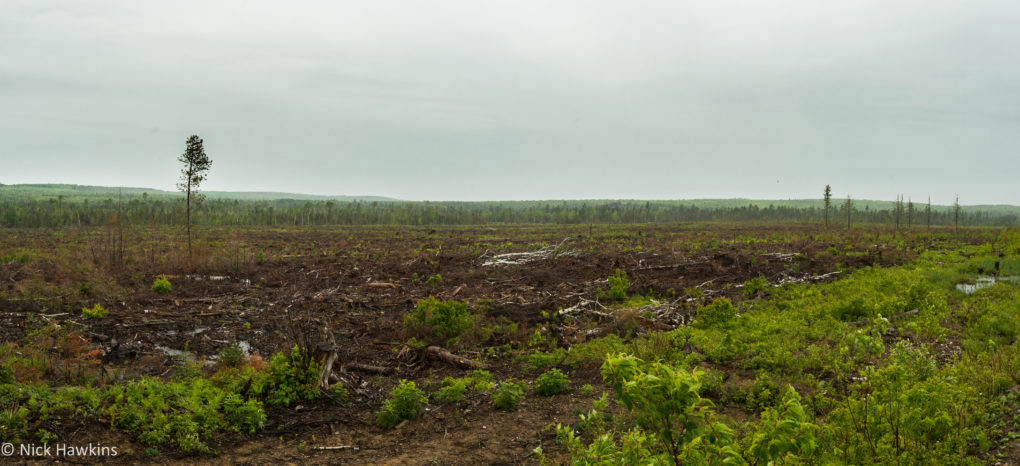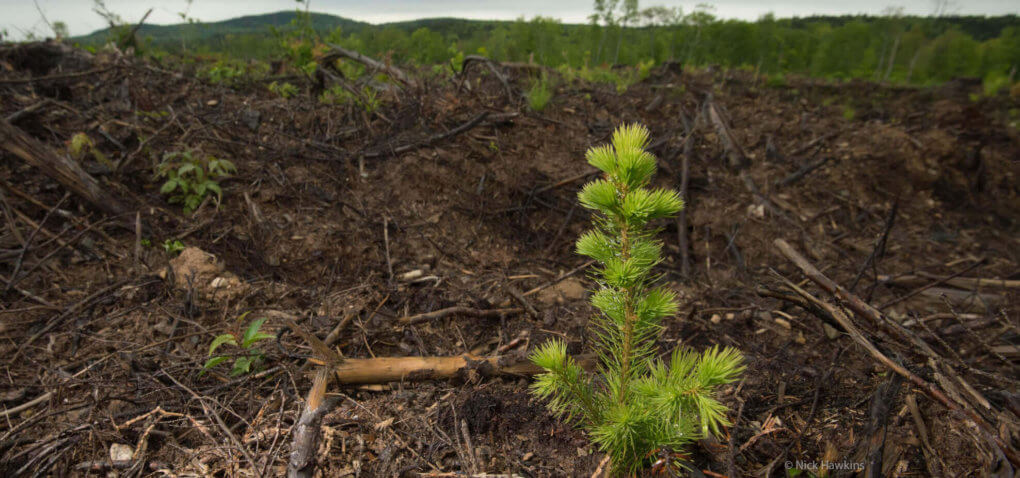Our Executive Director, Lois Corbett, has been invited to appear before the Standing Committee on Climate Change and Environmental Stewardship as the all-party committee meets in June to examine the use of glyphosate-based herbicides in our woods.
Corbett will present on glyphosate spraying as a symptom of the failing forest management approach in New Brunswick. For decades, big forestry companies have favoured large-scale clearcuts on Crown land which they then spray with herbicides to kill hardwoods and vegetation that compete with trees they plant to grow in plantations.
This is an old-fashioned, unnecessary approach to forestry. Jurisdictions around the globe, including in Quebec, have banned herbicide spraying on public land and continue to enjoy the benefits of a productive forestry industry.
Conservationists, biologists and hunters are worried that spraying vegetation is wiping out the food and habitats of our forest wildlife.
An overwhelming number of citizens agree, too—more than 35,000 New Brunswickers have signed a petition to stop spraying on Crown land, and more than 5,000 people have used our letter-writing tool to call on government to end the practice.
Want to know more about clearcutting and herbicide spraying in New Brunswick? Check out this fantastic 2019 documentary by Enquete (Radio-Canada), The Disenchanted Forest, which won the Conservation Council’s 2020 Beth McLaughlin Environmental Journalism Award.

Background
The Conservation Council has long advocated that the province stop the old-fashioned, taxpayer-funded practice of spraying the forest. Quebec banned the spraying of its public forest 20 years ago. Glyphosate, the main active ingredient in most herbicides used in Crown forest operations in New Brunswick, was listed as a probable carcinogen by the World Health Organization’s cancer research agency, the International Agency for Research on Cancer (IARC), in 2015.
The chemical is a key ingredient in the popular weed-killing product Roundup/Vision, developed by the agricultural giant Monsanto. In June 2020, Monsanto’s new owner, Bayer, said it would pay $10.9 billion to settle claims Roundup had caused cancer in some users. The company continues to maintain the product is safe.
Earlier this year, New Brunswick’s Auditor General released a follow-up to her 2015 report on forest management in the province.
You’ll remember that six years ago Kim Adair-MacPherson recommended that the Department of Natural Resources and Energy Development reduce the amount of Crown land harvested by clearcut, to bring practices in line with the government’s 2012 forest management plan.
“Clearcut is running consistently around 80 per cent, whereas in the area of selective or partial cut, there is a decline from 20 per cent to roughly 10 per cent in more recent years,” MacPherson-Adair told MLAs and reporters upon releasing the 2015 report.
Back then, she noted that the department had ignored numerous studies and recommendations calling for a reduction of clearcutting on Crown land. Her report said that selective and partial cutting methods are recognized as best management practices because they also serve to protect waterways, wildlife habitat, and preserve a healthy range of plant and animal life in the woods.
MacPherson’s 2015 audit also determined the province lost money on its Crown forest resource to the tune of $7- to $10-million between the audit period of 2009-2014.
The two main contributors to the annual forest deficit are the silviculture program and the licensing payments the provincial government gives to industry for doing the silviculture work in Crown forests, she said.
In 2021, Adair-MacPherson adds her own report to the list of recommendations ignored by the department.
“I am disappointed the Department of Natural Resources and Energy Development is yet to implement key recommendations from our 2015 chapters,” she says in her 2021 follow-up, released Feb. 23.
“The Department continues to disregard the need to reduce clear-cut harvest on Crown land to align with the Province’s forest management strategy.”

“We remain unsatisfied with the implementation rate of our recommendations,” she concluded.
That’s a sentiment shared by the Conservation Council, our supporters, and thousands of New Brunswickers who love our woods and want to see it managed for the benefit of all citizens, not just the large forestry companies.
We’ll continue to provide updates in the lead up to the Standing Committee meetings, slated for June 22-25. We’ll also share links so you can watch the livestream of Corbett and others’ presentations to the committee.
Recommended links:
- Read our New Brunswick Forest Report Card:
A Stakeholder Survey of Opinions and Recommendations on
Crown Forest Management in New Brunswick in 2017 - Find the Auditor General’s follow-up report here.
- Find the Auditor General’s 2015 performance report here.
- Read our 2015 article on her review of forest management and silviculture practices here.

